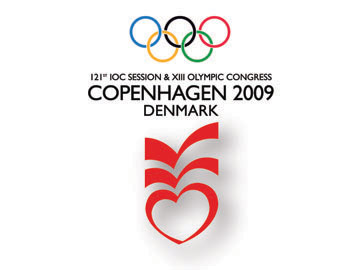 |
The Official
|
| www.sailing.org |

ISAF President Göran Petersson and ISAF Secretary General Jerome Pels are both in attendance at the Congress in Copenhagen. Today the ISAF President is scheduled to act as a representative of the International Sports Federations during a Plenary Session on one of the five main themes of the Congress, 'The Digital Revolution'.
At the opening of the Congress on Saturday, Ban Ki-moon praised the excellent cooperation between the United Nations and the Olympic family, and stressed common goals: "Sport can be found anywhere in the world. I have travelled to countries mired in poverty. To communities struggling to survive. To war-ravaged places where all hope seems lost. Suddenly, a ball appears, made out of plastic bags or newspapers. And we see sport gives life to hopes and dreams."
He concluded: "If you asked me to jog around this conference room, I would probably run out of breath. But when it comes to fighting for our shared global goals - for a world that is cleaner, healthier, more peaceful, more sustainable and more prosperous - I will sprint like an Olympian. I will summon the energy and run and run and never stop until we reach the finish line. I am counting on all of you to join me. We must go for gold."
Rogge told the delegates that their task is to provide "intellectual guidance" to help strengthen and improve the Olympic Movement. Under the overarching theme, "The Olympic Movement and Society," the three-day Congress will examine issues related to Olympic athletes, the Olympic Games, the structure of the Olympic Movement, Olympism and youth, and the digital revolution.
"We have gathered in this beautiful city to take stock of the Olympic Movement - to consider where we are today and where we want to be in the future," Rogge said. "We're here to continue the search for improvement. As we approach this task, we should think as boldly and as fearlessly as our founder."
The UN and the IOC cooperate on a host of projects related to the IOC's work as a values-based sport organisation. The IOC has embraced the UN's Millennium Development Goals and the environmental goals of Agenda 21. The two organisations also work together on the Olympic Truce, development through sport, education, humanitarian aid and health protection around the world.
About 1,200 delegates from the Olympic family, including International Federations and National Olympic Committees, as well as coaches, trainers, academics, medical specialists and representatives of the public, NGOs and the media will attend the three-day Congress. Their recommendations will be forwarded to the decision-making bodies of the IOC and other relevant stakeholders.
Congress Themes
Under the "Olympic Movement in Society", the debate is split into five main themes:
1. The Athletes
1.1 Relationship between the athletes, the clubs, federations and the NOCs
1.2 Health protection in training and competition
1.3 The social and professional life of athletes during and after elite competition
2. Olympic Games
2.1 How to keep the Games as a premier event
2.2 Olympic values
2.3 Universality and developing countries
3. The Structure of the Olympic Movement
3.1 The autonomy of the Olympic Movement
3.2 Good governance and ethics
3.3 The relationships between the Olympic Movement and its stakeholders
4. Olympism and Youth
4.1 Moving towards an active society
4.2 Is competitive sport still appealing?
4.3 Youth sport events
5. The Digital Revolution
5.1 A new management of sports rights
5.2 How to increase the size of the sports audience
5.3 Communication with stakeholders in the digital age
Visit the IOC website at www.olympic.org for more on the Olympic Congress.

















.png)